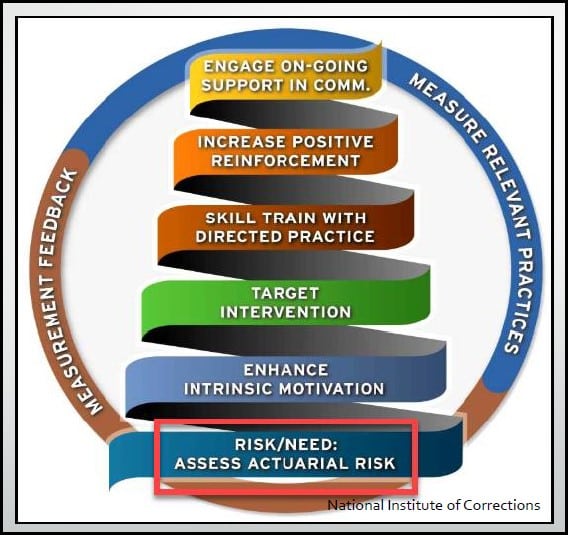The equivant Supervision and Pretrial team recently attended the 2024 Wisconsin Association of Treatment Court Professionals (WATCP) conference and presented on using COMPAS-R Core for case planning and management. This risk/needs assessment (RNA) was introduced in 2021 and designed specifically for today’s practitioners. It is a leap forward from the COMPAS Core, which was used for nearly 25 years to make evidence-based decisions about supervision and identification of treatment targets. You can read more about the differences between the two here.
This innovative new tool was our response to requests for a more transparent, effective, and efficient RNA that could easily integrate into current workflows. Let’s examine how COMPAS-R Core can be used for effective case management.
The Point of Risk/Needs Assessments
A validated risk/needs assessment is vital to an evidence-based organization because it is the foundation of the Eight Principles of Effective Intervention and provides critical measurement feedback that informs strategies and relevant practices. The assessment determines:

- Risk: the probability a person will commit a new crime (and how we measure it – WHO)
- Need: dynamic factors that may indicate a need for intervention (and how we measure it – WHAT)
- Responsivity: meeting them where they are (and how we effectively do that – HOW)
Enter the COMPAS-R Core
This fourth-generation RNA is supported by research and is fully transparent. It features point-additive scoring and has 30% fewer questions than the previous generation, which means it takes less time to administer. It is highly configurable to meet agency needs and features gender-specific score ranges and an additional trauma screener. The COMPAS-R Core uses a single risk scale that combines dynamic needs and historical factors for a single score to assess recidivism risk.
Components of COMPAS-R Core
equivant developed the COMPAS-R Core to be the most streamlined, transparent, user-friendly, and rigorous RNA available. It comprises six domains (including criminal involvement, lifestyle, and trauma) and 18 scales (including history of violence, substance use, and socialization history). Added together, this assessment gathers data across the spectrum of criminality indicators to help determine risk and assess areas of strength and concern. It was designed to be the primary tool for practitioners to determine criminogenic needs and inform case planning.
Integrating the Case Plan into Case Management
Understanding and thoughtful interpretation of the COMPAS-R Core is crucial for developing a robust and successful case plan. Remember to use a collaborative approach and meaningful language while including important stakeholders. Review the narrative results to tailor interventions to the individual, identify skill deficits, and identify/prioritize the driver(s). The results of your COMPAS-R Core evaluation provide powerful insights that allow you to develop an initial case plan but also monitor progress and make adjustments that allow for updates and changes as you continually manage the justice-involved individual and adjust his/her plan.
Learn more about how COMPAS-R Core was developed and how it differs from the standard COMPAS-Core assessments of previous generations. Contact us today to learn how COMPAS-R can meet your team’s assessment needs.






